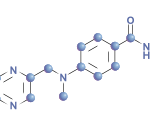 ACR CONVERGENCE 2020—In many ways, the current plethora of treatment options for rheumatoid arthritis patients represents an embarrassment of riches. However, while many therapeutics approved by the U.S. Food & Drug Administration (FDA) are available, knowing the order in which to try these medications with patients can be quite challenging. In The Great Debate, held Friday, Nov. 6, two master clinicians debated the following resolution: Janus kinase inhibitors (Jakinibs) should be used before biologics after methotrexate failure in rheumatoid arthritis (RA).
ACR CONVERGENCE 2020—In many ways, the current plethora of treatment options for rheumatoid arthritis patients represents an embarrassment of riches. However, while many therapeutics approved by the U.S. Food & Drug Administration (FDA) are available, knowing the order in which to try these medications with patients can be quite challenging. In The Great Debate, held Friday, Nov. 6, two master clinicians debated the following resolution: Janus kinase inhibitors (Jakinibs) should be used before biologics after methotrexate failure in rheumatoid arthritis (RA).
Pro
Arguing for this resolution was Vibeke Strand, MD, MACR, FACP, adjunct clinical professor, the Division of Immunology and Rheumatology, Stanford University School of Medicine, Calif. Dr. Strand began her argument by describing the trials that, to date, have supported the efficacy of Jakinibs in the treatment of RA.
- The ORAL Strategy trial demonstrated that tofacitinib given in combination with methotrexate, but not alone, was non-inferior to adalimumab plus methotrexate.1
- The RA-BEAM trial showed that, in patients with RA who did not adequately respond to methotrexate, baricitinib was associated with significant clinical improvements, compared with placebo and adalimumab.2
- In the SELECT-COMPARE trial, patients with RA who were treated with upadacitinib plus methotrexate had statistically significant higher rates of ACR20 and ACR50 response compared with adalimumab plus methotrexate.3
In addition to these findings of non-inferiority and, in some studies, superiority of clinical effectiveness, studies have also demonstrated impressive improvements in quality of life for patients treated with tofacitinib and upadacitinib, as measured by the 36-Item Short Form Health Survey (SF-36).4,5
Dr. Strand noted that patients on Jakinib treatment typically notice the onset of clinical improvement within one or two weeks of being on treatment. Patients may be more likely to maintain treatment adherence based on the ease of taking an oral medication—as opposed to an injectable or infusion medication—and the reassuring feeling of seeing fast results.
Jakinibs also have a shorter half-life than any biologic used in the treatment of rheumatologic conditions. Thus, patients and clinicians can feel comfortable knowing that, if the medication needs to be stopped, it will quickly be cleared from the body.
Dr. Strand addressed several potential adverse effects noted with Jakinibs, including the increased incidence of herpes zoster infection. However, given the availability of the recombinant, adjuvated zoster vaccine Shingrix, patients can receive immunization prior to treatment with Jakinibs. The risk of venous thromboembolism (VTE) is an important issue recognized by the FDA, which placed a black box warning on the package insert for tofacitinib in July 2019.6 However, Dr. Strand noted that, with RA itself representing a known risk factor for VTE and no known, plausible, biologic mechanism by which Jakinibs increase the risk of VTE, it would be reasonable to withhold this class of treatment from patients with a history of VTE, but it may not be necessary to do so in patients without such a history.
Con
Arguing against the resolution was Michael Weinblatt, MD, John R. Riedman Professor of Medicine, Harvard Medical School, Boston, and associate director for the Center for Arthritis and Joint Diseases, Brigham and Women’s Hospital, Boston. Dr. Weinblatt began his presentation with what he described as the most important point in this debate: the fact that the rheumatology community has 22 years of clinical experience and lessons learned from the use of tumor necrosis factor (TNF) inhibitor therapy since the first medication in this class, etanercept, was approved by the FDA in 1998.
Thus, in addition to the proven efficacy of this class of treatment, several studies to date have investigated the effects of dose reduction and withdrawal of treatment with TNF inhibitors. For example, a Cochrane Review article from 2019 noted that fixed‐dose reduction of anti‐TNF treatment after at least three to 12 months of low disease activity results in similar levels of activity and function as continuation of the standard dose.7 Such data do not exist for Jakinibs, and thus clinicians are left without guidance for future planning of dose-reduction strategies.
Dr. Weinblatt also explained the entire safety profile for TNF inhibitors is well described, and it is quite clear which adverse events to screen for and seek to prevent. He noted that some of these potential issues, such as exacerbation of demyelinating diseases, such as multiple sclerosis, took time to appreciate in clinical trials and real-life practice, and that we may learn unanticipated events arise in the use of Jakinibs.
Similarly, much more is known at present about the safety of TNF inhibitors in pregnant patients. In fact, the ACR published a guideline this year that conditionally recommends continuing TNF inhibitor therapy prior to and during pregnancy in patients with rheumatologic disease, with a preference for certolizumab.8
Dr. Weinblatt also raised important questions about the potential toxicities associated with Jakinibs. Not only does the issue of VTE exist, but so does the potential for increased major adverse cardiovascular events (MACE).9 This leads to a series of questions that so far remain unanswered: Can women with RA safely take oral contraceptive pills or receive hormone replacement therapy while on treatment with a Jakinib? Should obese patients avoid these medications given the association of elevated body mass index (BMI) with an increased risk of VTE? Do we need to screen patients with RA for the presence of antiphospholipid antibodies prior to initiating Jakinib treatment? These and many other queries will need to be investigated in the coming years, and the answers at present are not clear.
Dr. Weinblatt concluded his argument by noting that biosimilar options now exist for several TNF inhibitors. Although these biosimilars have not achieved widespread use to date in the U.S., they have the potential to represent a safe, less expensive option for patients who have trouble affording a brand name TNF inhibitor.
Researchers at the RAND Corp. estimated that biosimilars may reduce direct spending on biologic drugs by up to $54 million by 2026.10 No such options exist for Jakinibs and are unlikely to be produced in the near-term future.
Conclusion
In all, the debate was a fantastic display of mastery of the clinical data on this subject, thoughtful insights from two outstanding clinicians and a wonderful example of how critical reasoning can be used to inform discourse on the most important subjects in rheumatology.
Jason Liebowitz, MD, completed his fellowship in rheumatology at Johns Hopkins University, Baltimore, where he also earned his medical degree. He is currently in practice with Skylands Medical Group, N.J.
References
- Fleischmann R, Mysler E, Hall S, et al. Efficacy and safety of tofacitinib monotherapy, tofacitinib with methotrexate, and adalimumab with methotrexate in patients with rheumatoid arthritis (ORAL Strategy): A phase 3b/4, double-blind, head-to-head, randomised controlled trial. Lancet. 2017 Jul 29;390(10093):457–468.
- Taylor PC, Keystone EC, van der Heijde D, et al. Baricitinib versus placebo or adalimumab in rheumatoid arthritis. N Engl J Med. 2017 Feb 16;376(7):652–662.
- Fleischmann R, Pangan AL, Song IH, et al. Upadacitinib versus placebo or adalimumab in patients with rheumatoid arthritis and an inadequate response to methotrexate: Results of a phase III, double-blind, randomized controlled trial. Arthritis Rheumatol. 2019 Nov;71(11):1788–1800.
- Strand V, Kremer JM, Gruben D, et al. Tofacitinib in combination with conventional disease-modifying antirheumatic drugs in patients with active rheumatoid arthritis: Patient-reported outcomes from a phase III randomized controlled trial. Arthritis Care Res (Hoboken). 2017;69(4):592–598.
- Strand V, Schiff M, Tundia N, et al. Effects of upadacitinib on patient-reported outcomes: results from SELECT-BEYOND, a phase 3 randomized trial in patients with rheumatoid arthritis and inadequate responses to biologic disease-modifying antirheumatic drugs. Arthritis Res Ther. 2019;21(1):263. doi:10.1186/s13075-019-2059-8
- U.S. Food & Drug Administration. Drug safety communication: FDA approves boxed warning about increased risk of blood clots and death with higher dose of arthritis and ulcerative colitis medicine tofacitinib (Xeljanz, Xeljanz XR). 2019 Jul 26.
- Verhoef LM, van den Bemt BJ, van der Maas A, et al. Down-titration and discontinuation strategies of tumour necrosis factor-blocking agents for rheumatoid arthritis in patients with low disease activity. Cochrane Database Syst Rev. 2019 May 24;5(5):CD010455.
- Sammaritano LR, Bermas BL, Chakravarty EE, et al. 2020 American College of Rheumatology guideline for the management of reproductive health in rheumatic and musculoskeletal diseases. Arthritis Rheumatol. 2020 Apr;72(4):529–556.
- Charles-Schoeman C, DeMasi R, Valdez H, et al. Risk factors for major adverse cardiovascular events in phase III and long-term extension studies of tofacitinib in patients with rheumatoid arthritis. Arthritis Rheumatol. 2019 Sep;71(9):1450–1459.
- Mulcahy AW, Hlavka JP, Case SR. Biosimilar cost savings in the United States: Initial experience and future potential. Rand Health Q. 2018 Mar 30;7(4):3.




